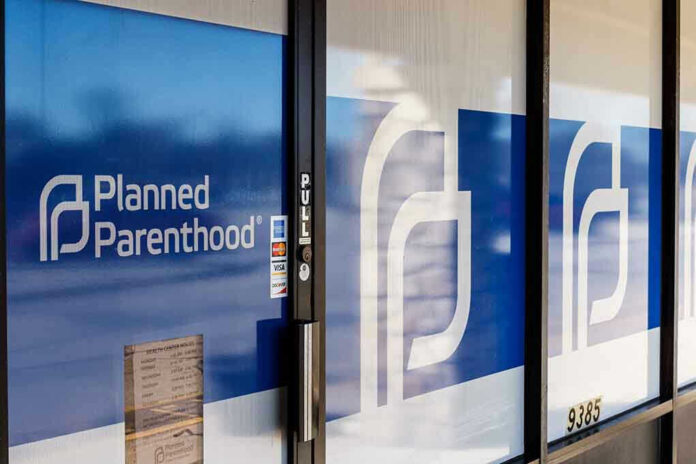
Planned Parenthood could be forced to repay a staggering $1.8 billion to Texas and Louisiana—a development that threatens the very existence of the organization and stands as a landmark victory for states pushing back against questionable Medicaid billing practices.
Story Snapshot
- Planned Parenthood faces repayment of up to $1.8 billion after being disqualified from Medicaid by Texas and Louisiana.
- The 5th Circuit Court of Appeals is deliberating whether Medicaid funds paid under a now-overturned injunction must be returned.
- The outcome could set a national precedent for holding healthcare providers accountable under the False Claims Act.
- Pro-life advocates describe the lawsuit as an existential threat to Planned Parenthood’s national operations.
States Demand Accountability for Medicaid Payments
Texas and Louisiana have launched a high-stakes legal campaign to recover $1.8 billion in Medicaid funds from Planned Parenthood. The effort began after undercover videos in 2015 purported to show Planned Parenthood employees discussing the sale of fetal tissue, prompting state officials to revoke the group’s Medicaid eligibility. Despite this action, Planned Parenthood continued billing Medicaid during a years-long court injunction. Now, with the injunction lifted, the states argue that every dollar paid during that period was improper and must be repaid.
The legal battle is unfolding before the U.S. Court of Appeals for the 5th Circuit, where oral arguments were heard in September 2025. The court’s decision will determine whether Planned Parenthood is liable under the False Claims Act for Medicaid payments received while its disqualification was tied up in the courts. If the 5th Circuit sides with the states, a lower court jury could set the final repayment amount, potentially forcing the organization to shutter clinics and upend its operations nationwide.
Origins of the Dispute: A Decade in the Making
The roots of the current legal crisis trace back to 2015, when activist David Daleiden released undercover videos that ignited a national firestorm over Planned Parenthood’s practices. Texas and Louisiana responded by moving swiftly to cut off Medicaid funds, citing violations of medical and ethical standards. Planned Parenthood challenged the move, securing a court injunction that allowed it to keep billing Medicaid as the legal battle played out. That injunction remained in place for years, until the 5th Circuit lifted it in 2020—setting the stage for today’s showdown over repayment.
After the injunction ended, an anonymous whistleblower filed a suit under the False Claims Act, aiming to recover funds on behalf of the states. The case represents one of the largest applications of the False Claims Act against a healthcare provider, raising the stakes for Planned Parenthood and signaling to other organizations that states can and will pursue aggressive legal remedies when taxpayer money is at issue.
Potential Consequences for Planned Parenthood and Beyond
If the 5th Circuit rules in favor of Texas and Louisiana, Planned Parenthood could be facing not just a major financial blow but an existential threat to its entire operation. Over $1.8 billion is enough to force widespread clinic closures, layoffs, and a dramatic reduction in services for millions of patients—many of whom are low-income and rely on Medicaid. Pro-life leaders have called the lawsuit a turning point in the fight over abortion funding, while pro-choice advocates warn of devastating consequences for public health and access to care.
Legal experts note that applying the False Claims Act to funds received under a court injunction is highly unusual, raising questions about retroactive liability and the reach of whistleblower statutes. Nevertheless, supporters of the lawsuit argue that it is a necessary step to protect taxpayer money and enforce the law, especially when it comes to organizations accused of unethical behavior. The outcome of this case will not only define Planned Parenthood’s future, but could set a powerful precedent for holding other providers accountable for questionable billing practices.
The broader implications extend beyond Planned Parenthood. A victory for the states could embolden efforts nationwide to scrutinize Medicaid providers and challenge the use of public funds for controversial services. With the court’s decision pending, both sides are bracing for an outcome that may reshape the landscape of nonprofit healthcare and abortion access in America.
Sources:
Appeals court hears high-stakes case over Planned Parenthood Medicaid funds
Appellate court to decide Planned Parenthood case potentially costing $1.8 billion
Planned Parenthood could owe $1.8 billion in Medicaid fraud lawsuit
Planned Parenthood May Have to Pay $1.8 Billion to Texas and Louisiana in Fraudulent Medicaid Claims
Litigation Involving Reproductive Health and Rights in the Federal Courts















